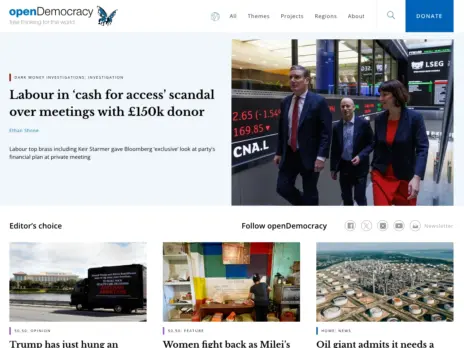
Police request for riot footage ‘puts journalists at risk’
Journalists could be put at risk by increased police demands for access to media footage from riots, Northern Ireland’s main news organisations have warned.
Journalists could be put at risk by increased police demands for access to media footage from riots, Northern Ireland’s main news organisations have warned.
Editors wrote to the province’s Chief Constable, Matt Baggott, expressing fears over the dangers of police “fishing expeditions” after the courts ordered news organisations to hand over images from recent riots in east Belfast.
The editors said that while they recognised the important work of security forces, officers had on one occasion sought press footage from disturbances before viewing more than 70 hours of their own video.
They expressed concern at the “increased use of indiscriminate applications” to court for access to media material, which “threatens the good relations” between the press and the police.
The letter said: “The undersigned have a genuine fear that terrorists and rioters will target the media whom they perceive to be evidence gatherers for the state, however involuntary that role might be.
“Even in recent weeks we have seen one photo-journalist injured by a bullet and a cameraman provide evidence in court that a bullet passed through his trousers and that he believed the media were being deliberately targeted whilst covering civil disturbances in Northern Ireland.”
The news groups said society as a whole would suffer if safety concerns forced media organisations to stop sending journalists to report on riots.
“None of the undersigned have any desire to obstruct legitimate evidence gathering or policing, nor do anything that would harm the prosecution process or would endanger public safety.
“However, we do believe that senior officers within the PSNI (Police Service of Northern Ireland) need to understand the damage that the increased frequency and broader scope of such applications does to the public perception of news organisations as being independent and impartial and, therefore, to the safety of our staff.”
‘Fishing expedition’
The groups said police should only seek access to media images through the courts as a last resort when video gathered by officers had been reviewed and found to be deficient.
“Where an application for a production order is necessary, this should be limited to what is necessary and proportionate in the circumstances, and should not be a wide-ranging request seeking many hours of footage from a number of media organisations, which is akin to a fishing expedition,” they said.
The letter was compiled by UTV Television managing director Michael Wilson on behalf of BBC Northern Ireland, the Press Association, Sky News, The Irish News, The Belfast Telegraph and The News Letter.
The intervention is also backed by the National Union of Journalists (NUJ) and the Broadcasting Entertainment Cinematograph and Technicians Union (Bectu).
“As we are sure you will understand, the safety of our staff is our paramount concern,” the letter said.
“As such, we request that the PSNI implement a new policy such that it will always first review and endeavour to rely upon its own material in evidence before resorting to an application to obtain material gathered by the media for news purposes.
“The media has the right, protected by law, to film independently and to impart information of public interest to the public, who have a corresponding interest in receiving such information.”
They noted the comments of a senior police officer who said broadcasting riot footage by the media had led to members of the public approaching the police to identify offenders.
Police relationship at risk
The news groups said it was “in the interests of the PSNI, the undersigned media organisations and the wider public for the media to attend and to broadcast such footage of civil disturbances as it sees fit”, adding: “However, it appears that in recent months the PSNI has been relying with ever greater frequency on all encompassing requests, and ultimately applications, for transmitted footage and pictures following civil disturbances.
“This is despite the PSNI deploying sophisticated CCTV, aerial film, vehicle-mounted cameras and having the benefit of the media’s broadcast/published footage and pictures, as well as, presumably, having informer evidence.”
The media groups offered to meet the Chief Constable to debate the issues and develop a new protocol.
“We understand that the PSNI has a very important and very difficult job to do, but the existing policy in relation to production order applications is putting the generally good relationship we have with your force at significant risk.”
A PSNI spokesman said it had received the letter and was studying its contents.
Email pged@pressgazette.co.uk to point out mistakes, provide story tips or send in a letter for publication on our "Letters Page" blog






